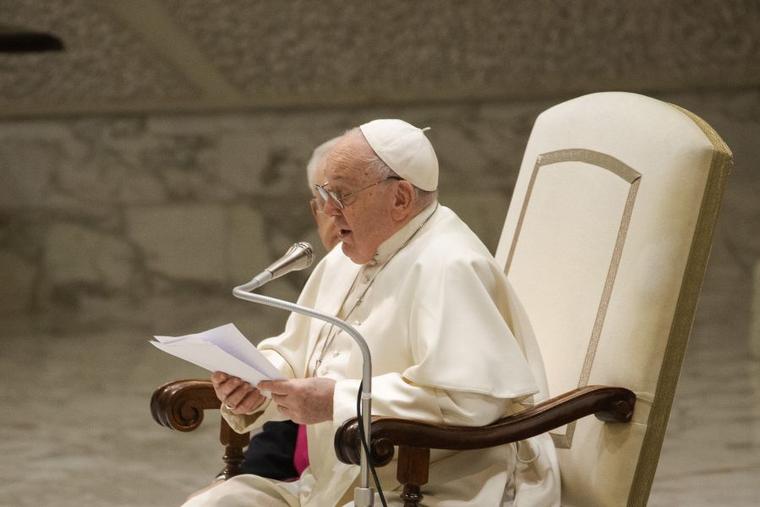Cycle of Catechesis. Vices and Virtues. 1. Introduction: safeguarding the heart
Dear brothers and sisters, good morning!
Today I would like to introduce a cycle of catechesis – a new cycle – on the theme of vices and virtues. And we can start right from the beginning of the Bible, where the Book of Genesis, through the account of the progenitors, presents the dynamic of evil and temptation. Let’s consider the earthly Paradise. In the idyllic picture represented by the garden of Eden, a character appears who will be the symbol of temptation: the serpent, this character who seduces. The snake is an insidious animal: it moves slowly, slithering along the ground, and sometimes you do not even notice its presence – it is silent – because it manages to camouflage itself well in its environment, and above all, this is dangerous.
When it begins to converse with Adam and Eve, it shows that it is also a refined dialectician. It begins as one does with wicked gossip, with a malicious question. He says, “Did God say, ‘You shall not eat of any tree of the garden?’” (Gen 3:1). The phrase is false: in reality, God offered man and woman all the fruits of the garden, apart from those of a specific tree: the tree of knowledge of good and evil. This prohibition is not intended to forbid man the use of reason, as is sometimes misinterpreted, but is a measure of wisdom. As if to say: recognize your limit, do not feel you are the master of everything, because pride is the beginning of all evil. And so, the story tells us that God establishes the progenitors as lords and guardians of creation, but wants to preserve them from the presumption of omnipotence, of making themselves masters of good and evil, which is a temptation – a bad temptation, even now. This is the most dangerous pitfall for the human heart.
As we know, Adam and Eve do not manage to resist the temptation of the serpent. The idea of a God who is not so good, who wanted to keep them in subjection, who wanted to keep them in his submission, insinuated itself into their minds: hence the collapse of everything.
With these accounts, the Bible explains to us that evil does not begin in man in a clamorous way, when an act is already manifest, but the evil begins much earlier, when one begins to fantasize about it, to nurse it in the imagination, thoughts, and ends up being ensnared by its enticements. The murder of Able did not begin with a thrown stone, but with the grudge that Cain wickedly held, turning it into a monster within him. In this case too, God’s recommendations are worthless.
One must never dialogue, brothers and sisters, with the devil. Never! You should never argue. Jesus never dialogued with the devil; He cast him out. And when in the wilderness, [with] the temptations, He did not respond with dialogue; He simply responded with the words of Holy Scripture, with the Word of God. Be careful: the devil is a seducer. Never dialogue with him, because he is smarter than all of us and he will make us pay for it. When temptation comes, never dialogue. Close the door, close the window, close your heart. And so, we defend ourselves against this seduction, because the devil is astute, intelligent. He tried to tempt Jesus with quotes from the Bible! He was a great theologian there. With the devil you do not dialogue. Do you understand this? Be careful. We must not converse with the devil, and we must not entertain ourselves with temptation. There is no dialogue. Temptation comes, we close the door. We guard our heart.
And that is why we do not converse with the devil. This is the recommendation – guard the heart – that we find in various fathers, saints: guard the heart. Guard the heart. And we must ask for this grace of learning to guard the heart. It is a form of wisdom, how to guard the heart. May the Lord help us [in] this work. But he who guards his heart, guards a treasure. Brothers and sisters, let us learn to guard the heart. Thank you.
Source: vatican.va





